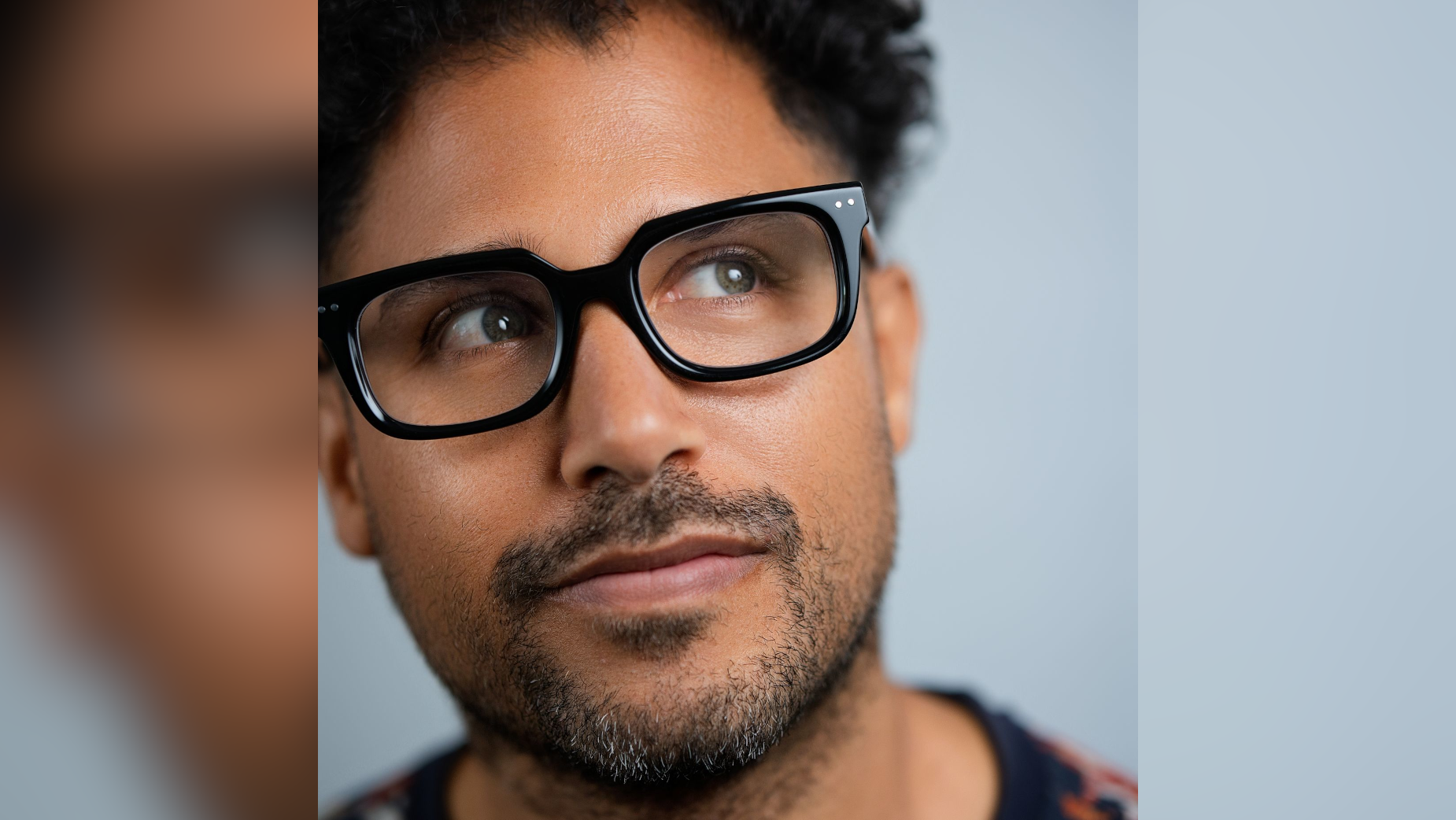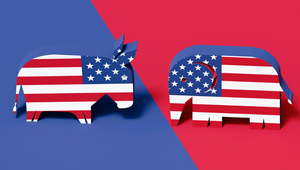
How adam&eveDDB Is Fostering Creative Culture Across the US

One month ago, adam&eveDDB announced the appointment of Rene Ramirez as head of creative talent for its New York office. In this newly formed role, Rene is leading creative recruiting and operations in collaboration with the wider adam&eveDDB leadership team including Richard Brim, global CCO, Caroline Winterton, CEO, US, and the incoming CCO for the US, Brynna Aylward, who is joining from GUT Toronto. Prior to joining adam&eveDDB, Rene spent more than seven years at Droga5, playing a key role during the agency's heyday as director of creative talent.
Rene joins adam&eveDDB at a pivotal time, as it readies the launch of a San Francisco outpost. To quote a DDB press release announcing his hire, Rene "is charged with pipelining new talent and overseeing creative operations to ensure that creativity is pulsing through every part of the agency – from talent staffing to mentorship and retention and attracting a new generation of makers and creators who share a unique perspective for what work-life balance looks like."
To find out more about how that might work in practice, LBB's Addison Capper chats with Rene.
LBB> It feels like, more than ever, the ad industry is a time-crunched business. Clients and agencies expect more - and they expect it quickly. In your role, how do you think about tackling this?
Rene> The agencies that are doing this right know how to manage expectations. They have a keen sense of what they’re offering and who they are, and don’t come off that line for anyone.
It has to start from the top though, so for me, it’s working with leadership to align on what our priorities are and communicate that to the creatives so we’re all on the same page. Unity! Then as a holistic crew it’s up to us to work in a manner that plays to our strengths, while at the same time servicing the client in ways which make them profitable. Faster isn’t necessarily better, the key part for us is showing clients the value in doing things our way, which is cool as long as we’re impacting the bottom line.
LBB> How does this issue influence the type of 'environment' you aim to build for creatives?
Rene> Time has a huge impact on it, on everything, so it’s definitely something we have to manage. That’s why aligning on our priorities and knowing one's creative identity is so important. Where agencies get it wrong is in trying to go at every little thing at full speed, with all hands on deck, without clearly understanding where the opportunity or their strength lies.
If we’re all aligned on how we’re moving forward with a client, regardless of how big or small the business is, we’re not going to waste our time and energy running at things in the wrong way. And all of this is about decision-making, right? If we’re making the right calls in relation to ‘time’, that’s going to garner, at the very least, trust from the department - and if we’re making the right decisions consistently, we’ll be providing exciting opportunities to our creatives. That’s winning.
So when we’re talking about ‘environment’, once that trust is earned, and the opportunities are in the ether, there’s no limit to what we can do. All any creative wants is the opportunity to make great work, and it’s our job to build an environment where that’s abundant.
LBB> Tell me a bit about the role in general - what do you feel are the most pressing challenges and aims for you off the bat?
Rene> The role is three fold. It’s leading our creative recruiting efforts, it’s building a creative culture, and helping with the operational side of the business/department. The most pressing thing is to get to know our people, to build relationships with each and everyone of them, and most importantly - earn their trust. They need to know they have an advocate who’s watching out for their career. From there we can set expectations, build culture, and start moving upwards, start winning. A lot of this is going to be supercharged by our incoming CCO, who I’m super excited about, and they’re going to be such a force in level setting our goals and ambitions. There’s a ton of stuff we want to do, so communicating that excitement to the crew, and getting them up for what’s next is the challenge. It all starts with trust though, and if it wasn’t challenging then it wouldn’t be fun.
LBB> Why is this role something that you feel adam&eveDDB needs in the US right now?
Rene> You can have the best talent in the world, but if you’re not taking care of those people, nurturing them, growing them, showing them how much you value them, then they’re going to be on their way. That’s not to say adam&eveDDB isn’t doing this, because we are. Getting organised about how we operate, how we work, and what our ambitions are, is only going to make us stronger.
Why? Because it’s an exciting time! We’re getting a new CCO in Brynna Aylward, so on all operational fronts the department and agency has to be in a position to execute against where the vision lies, so it’s the perfect time to be getting involved, at the beginning of a new era.
LBB> Why was it a place you were keen to move to?
Rene> We have a legacy and a commitment to creative. adam&eve London’s history is akin to Droga’s in the US - their work is iconic and impacts culture. There exists a great tradition, and a high bar that needs maintaining.
adam&eveDDB New York is cut from the same cloth in terms of ambition.e have great talent, and I’m in a place in my career where I want to make a mark by building something special. Rick [Brim], Caroline [Winterton], James [Rowe] and Brynna understand the value of creativity and want New York to live and breathe it.
Like I said earlier, it starts at the top. As long as we’re all aligned that creative is what runs everything, then the potential of what we can do together was something I couldn’t pass up.
LBB> Your role isn't entirely internal-facing - you also need to attract creatives to adam&eveDDB, and make it feel like a destination for them. What are your thoughts on how you can achieve that?
Rene> Droga taught me a lot. Ask anyone who spent time there during our glory days, and they’ll tell you the energy was palpable, magnetic, and inspiring. In one way or another, all of the alums are trying to recreate that on their own and elsewhere. Look around, we’re all (there’s a long list of us) always trying to achieve some semblance of that success, and who better to help usher that to agencies than the people who’ve lived through those moments.
I believe in the talent of this creative department, in this agency, and in our people. Plus, our output over the next several months is going to be a big part of this being a desirable spot. Now throw in a new CCO, and we have the makings of something unique. I would hope talent would want to be a part of that, I certainly do.
LBB> What are some of the biggest challenges in 2024 when it comes to building a comfortable, inspiring workplace for creative talent? Why?
Rene> Showing creatives that we’re genuinely invested in them. That we actually care, that we’re listening, and that they’re valued. More than anyone else, they need to be seen, and just like anyone else they seek transparency, opportunities, and want to know that someone’s looking out for their career and has their back. Agencies should be providing that for them - it sounds simple, but I feel this is a huge gap at a lot of shops. For me this is a part of building culture - advocating for our people, getting them in rooms with clients, having juniors on production, providing visibility into the business and putting them in positions that show them they have skin in the game.
And I didn’t even mention burnout! Why this is all so challenging though, is that agencies forget that the creators, the ones in charge of creativity, are our most important asset. This happens for a number of reasons, way too many to mention, but as long as we show up for them consistently, chances are they’ll do the same in return.
LBB> What are some techniques you foresee using when it comes to bringing in newer, younger talent and helping them excel in the future?
Rene> We have to play the long game. What I mean by that is, we have to add to our roster the right mix of leadership, diversity, and arm ourselves with creatives who have a wide skill set in terms of the style of their output. These are the people who are going to help nurture, care, and grow our existing and incoming talent. We have a decent amount of those people already, so for me the job becomes how do we expose new talent to the good shit that’s going on here, and how can we get our existing talent to continue to level up and educate those around them. If our environment is one that is curious and caring, then people are going to want to be a part of that, specifically new joiners that see we’re looking out for one another. That’s the vibe I’m looking to create, and a lot of that already exists.
LBB> You've been in creative talent roles for the past five years or so. How do you feel the job - and the things you have to consider - has evolved over that time?
Rene> It’s evolved a lot, and I’ve evolved a lot. Five years ago I had no idea what the hell I was doing, hahaha. I still don’t in a lot of ways. But I had great people around me - Julia [Albu], Feliks [Richter], Tim [Gordon], Mary King, and Neil [Heymann] - that all helped me grow. What I was saying earlier about investing in your people, the difference between now and then is, now people are more quick to jump elsewhere. Creatives and gen Z are demanding a certain work/life relationship. And not to say they weren’t five years ago, but now we have to be way better at what we do, more attentive, great communicators, or people will leave. And good on them, the pandemic fast tracked all of this. The flip side is that people in my role, creative leaders and the like, have to set up the expectation. If your aim is to be the best shop out there, well that needs to be communicated to your people. That expectation has to be laid out, people need to see the path on how to get to great, but we can’t expect creatives to do amazing things just by saying, ‘go do amazing things’.
Five years ago, the most important thing for me was taking care of our creatives, and if I’ve gotten better at anything it’s actioning on the things they tell me, because, again, they’re the most important part of all this, and we can’t afford not listen to what they’re saying.
LBB> What are your big hopes for your new role between now and, say, the end of the year?
Rene> To gain trust. To have fun. To put creatives in positions where they can make impactful work, and to start winning… a lot. Yeah, winning with Rick, Caroline, James, Kimmy [Harvey], Brynna and the new amazing creative department that I now have the privilege of looking after.















